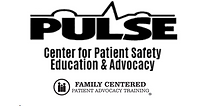
C. Lynn Chevalier, DHSc, MPH (CPH), MS, CSSGB, CPC, Chairperson of the Pulse Board
Pulse: Thanks for talking to us, Lynn. Could we start by asking where you work?
Lynn Chevalier: I work as Assistant Professor in the College of Healthcare Sciences at Southeastern University in Florida, teaching evidence-based medicine, epidemiology, policy, statistics and research, medical writing — a lot of different courses. I’m also an Adjunct Professor at A.T. Still University.
Pulse: How long have you been part of Pulse, and how did you get involved?
LC: Oh, a long time! I met Ilene at a conference in New York State, and we became friendly. She recommended me for a post at the National Patient Safety Foundation. We had some great, great conversations.
Pulse: You are currently Chair of Pulse’s Board. How would you describe your role?
LC: I do odd things! I help with events . . . . it’s like all of us: if we have expertise in something we try to do that if it’s helpful, and then we help each other. I think everybody kind of has to do that and work together.
Pulse: And why do you continue to remain involved?
LC: Because I certainly believe in patient safety, equality, patients understanding the healthcare system, preventing medical error — really, preventing ‘bad health care’. [I want to prevent] people not understanding what their health care means: all of that is what I teach in my patient safety course. That’s a full semester patient safety course. A lot of things that happen here influence what I teach there.
Pulse: Finally, let’s say you meet somebody who’s never heard of Pulse and asks what it’s all about. What would you want them to know?
LC: That Pulse is really an advocacy organization looking out for the best interests of patients. And Pulse’s teaching: teaching patients, teaching providers, teaching the general public and each other how do we support people being their own advocates in the healthcare system. How do we ensure that the healthcare system is accountable for safe care? So we have to be advocates, we have to teach people (and they teach us!). We have to listen to their stories, that’s very important, right?
